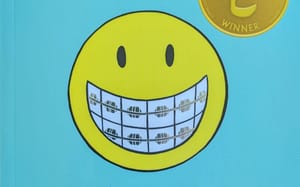Larry McMurtry and the card catalog
I bought Walter Benjamin at the Dairy Queen by Larry McMurtry while on vacation in Dublin last week. I had read a review of his recent Books: a memoir on the plane over and this prompted me to pick it up when I saw it, appropriately enough maybe, given its discussion of book selling and finding, on a bargain table in Hodges Figgis. Here is a descriptive paragraph from the New York Times review:
Walter Benjamin at the Dairy Queen,” McMurtry’s tentative, poignant new book, subtitled ”Reflections at Sixty and Beyond,” begins in the summer of 1980 with the author reading Benjamin’s 1936 essay ”The Storyteller” in the Dairy Queen in Archer City, Tex. — the town long since made famous as Thalia to readers of McMurtry’s novels. The Dairy Queens of West Texas, he declares, ”by providing a comfortable setting that made possible hundreds of small, informal local forums, revived, for a time, the potential for storytelling of the sort Walter Benjamin favored.” McMurtry then reflects, glancingly, on ”the resilience of a story” in an age when ”we are all so oversupplied with information” that human memory seems almost unnecessary. // Even Cowboys Get the Blues
I was amused by how he tested Benjamin’s thoughts against his own experience in early pages, and the suggestive description of the different fictional strategies available in ‘old Europe’ and the American West that flowed from this.
The retrospective nature of the work means that there is much focus on things lost. And in a book much about books and reading, it is not surprising to see the card catalog figure as one of these lost things. Indeed, we are now used to seeing the disappearance of the card catalog stand service for a wider set of regretted change. Here, the context is a discussion of how computers ‘take the work out of work’, quoting an observation of Valery about the modern abbreviation of work. The case is a comparison of writing by hand, using the typewriter, and using a computer. He talks about the tactile nature of typing, the connection between touch and writing, the ‘imperfections in the ribbon or the inking, just enough so that the process of writing demands a little attention and some manual application’.
This may seem – and be – an overtly romantic view of typing and typewriters; by the same token Nicholson Baker’s paean to the library card catalogues (now gone) was considered romantic by most librarians. // p.35
Adorno and the card catalog
Reading this I was reminded of some observations about the ‘withering of experience’, which is what McMurtry seems to be getting at here, by Benjamin’s friend Adorno which I have linked to the disappearance of the card catalog in the past.
This experience has become a private touchstone when I see discussions of how technology has changed things, or when people bemoan the loss of valuable practices as our digital environment spreads. Take this quote, for example, from the melancholy Adorno:Technology … expels from movements all hesitation, deliberation, civility … Not least to blame for the withering of experience is the fact that things, under the law of pure functionality, assume a form that limits contact with them to mere operation, and tolerates no surplus either in freedom of conduct, or in autonomy of things, which would survive as the core of experience, because it is not consumed by the moment of action. // Theodore Wiesengrund Adorno. Minima Moralia. Verso: London, 1978.Now, the replacement of the Browne Issue System represented the decline of a minor craft, the replacement of a modestly skilled but tedious activity. It changed a pattern of experience, saved time, restructured buildings (not necessarily for the better). But this is a case where access to ‘pure functionality’ is a benefit which outweighs the ‘withering of experience’ it brought about. // Lorcan Dempsey’s weblog: The Browne Issue System and the reordering of experience
Elsewhere, I take up the same theme:
The catalogue has a special place. Much of the collection is hidden: it exists as potential. Discovery in the catalogue makes it actual. The catalogue acts as a surrogate for the collection, and, for the dedicated library user, searching the catalogue is continuous with the wider accumulation of knowledge. It suggests the size of the collection, the mass that still needs to be prospected. The traces of its creators can be seen in the styles, over time, of the individual entries. Griliches includes a photograph of a card catalogue from Boston Public Library and describes it in personal terms “This solid, well-used wooden veteran has a personal attraction and a kind of lasting beauty that a computer can never have. I wanted to make its portrait before it disappears.” A portrait comes from a dialogue with a life: the catalogue has a life that is bound up with the lives of previous users and those that have created it. She includes a caption from Barbara Tuchman: “For me the card catalogue has been a companion all my working life. To leave it is like leaving the house one was brought up in.” And so, it is not difficult to understand how for many people, automation of the catalogue represents, in a real way, a “withering of experience” as described by Adorno. // Library places and digital information spaces: reflections on emerging network services
As I go on to say, this is especially so as it is recognized as a prelude to further change, which not only signals a changing relationship to particular physical places, but the disappearance of the craft, the tacit knowledge, which is a part of their use. Seen this way, developments are part of a larger reordering of experience, and assume symptomatic importance.
Picture: I took the feature image of a Dairy Queen in Worthington, Ohio.
Note: Cosmetic amendments on 2 April 2021, including fixing spacing, and adding feature image and headings.




